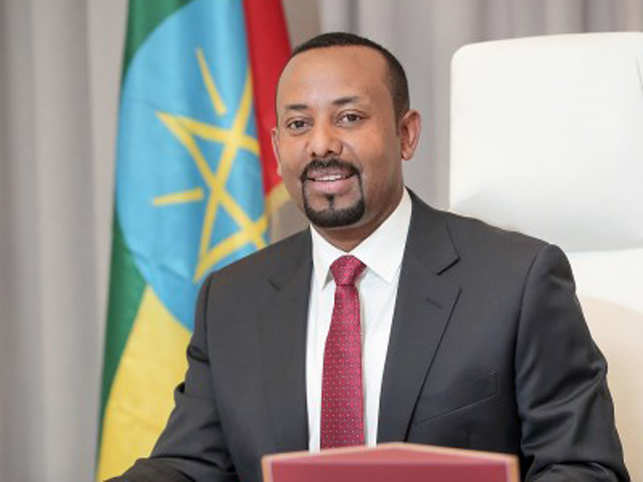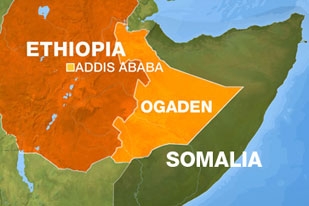On the 11th October, The 100th Nobel Peace Prize 2019 was awarded to Abiy Ahmed Ali, Prime Minister of Ethiopia, “for his efforts to achieve peace and international cooperation, and in particular for his decisive initiative to resolve the border conflict with neighbouring Eritrea.”

Mr Abiy’s peace deal with Eritrea ended a tumultuous 20-year military stalemate following their 1998-2000 border war.
He has also freed thousands of opposition activists from jail and allowed exiled dissidents to return to their respective homes. Abiy freed the media, which was one of the most censored media in the world.
Under his leadership, several women have been appointed to prominent positions, making up 50% of his cabinet. He is heralded as a hero to many of those in Ethiopia and all across the world, becoming a role model for what a progressive, stable and morally correct prime minister should be.
The Nobel Peace Prize For A Genocidal leader
Abiy’s critics have spoken publicly against him, accusing him of leading a genocide against ethnic Somali Muslims in North-Eastern Ethiopia.
The North-Eastern area of Ethiopia, Ogaden is a 327,000 square kilometre territory located in eastern Ethiopia and on the border with Somalia. The region was once part of the Somali Ifat Sultanate. It was handed back and forth from European colonial rulers, as Italy and Britain laid claim over the land during the previous century.

“However, a blind eye is turned to the crimes against Somalis because the government in Addis Ababa is a key US ally in the ‘War on Terror’,” according to Mohamed Abdulkaadir, in 2018, a Somali journalist with the independent Somali news agency Halgan News, speaking to CJ Werleman.
The United States is cognizant of Ethiopia’s repressive violence in the region of Ogaden. The US-backed Ethiopia’s 2006 invasion of Somalia resulted in a three-year conflict killing more than 16,000 Somalis and displacing 1.9 million.
Nobel Peace Prize or A Nobel War Prize?
The Nobel Peace Prize being awarded to Abiy Ahmed recognises a move that will forever cement peace in the history books between Ethiopia and Eritrea. Another step closer to African unity, and the removal of wars that divide Africa.
The set of prizes, established by Swede Alfred Nobel and first awarded in 1901. Nobel made a huge fortune throughout his life, as one of the most prominent industrialists of his day. His father Immanuel had helped develop the first naval landmines used successfully in warfare. Similarly, Alfred himself amassed his fortune from armaments and invention of dynamite. At it’s core, the prizes could be seen as an apology for investing in destructive technologies.
This is certainly not the first time the awarding of the prize has caused controversy. One stand out example was Henry Kissinger US Secretary of State being named Nobel Laureate in 1973, alongside Le Duc Tho, North Vietnam’s chief negotiator for arranging the armistice in the Vietnam War. Critics alleged his involvement in extending bombing campaigns to Cambodia and lying to the American people about the extent of the war, made a mockery of the prize. Tho became the only person to refuse the award on grounds that ‘peace had not been reached’ in his country.

President Abiy Ahmed shows us that Africa can come together and put its history behind it in a way to recognise and be progressive in its future. He joins a long list of fellow African peacemakers such as Nelson Mandela (1993), and Denis Mukwege (2018) who have also won the Nobel peace prize. Peace in the modern world is by no means an easy feat. It is a constantly swinging pendulum. Certainly leaders winning internationally recognizable prizes and awards does good work to rehabilitate the status of Africa as a monolithic backwards continent, existing only to be saved by the West.
Sadly, it seems that Abiy has become a freedom fighter at one end, helping Ethiopia and Eritrea settle their long-held differences, and at the other his crimes against Somalians remain largely hidden. Winning a Nobel Peace Prize infers ‘peace’ as a core tenant of the award, yet how can he win a prize when the Somalians are not at peace? Perhaps when peace does have to be fought for, and fitted into a Western nation state democratic lens, a prize for peace is not so fitting a title when ‘peace’ is characterised as the photo opportunity of two leaders shaking hands. Arguably, this does not translate to peace for the average Ethiopian or Somalian.
Does peace, for example, mean a mere absence of violence or a positive state of justice and good will? Either way, generating a lively discussion about what peace means in our changing world is definitely of great benefit.


